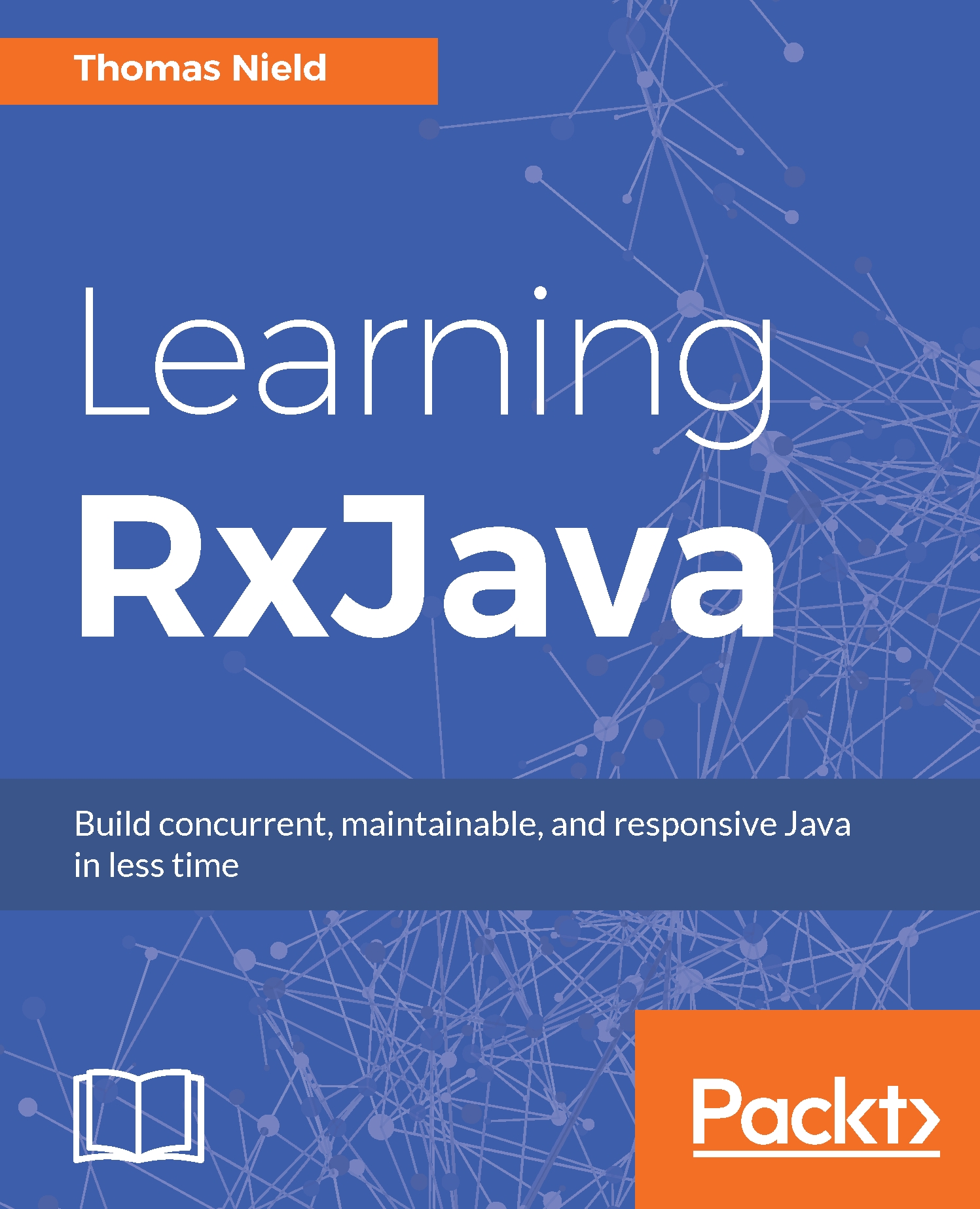In our final chapter, we will apply RxJava to an exciting new frontier on the JVM: the Kotlin language.
Kotlin was developed by JetBrains, the company behind Intellij IDEA, PyCharm, and several other major IDEs and developer tools. For some time, JetBrains used Java to build its products, but after 2010, JetBrains began to question whether it was the best language to meet their needs and modern demands. After investigating existing languages, they decided to build and open source their own. In 2016 (5 years later), Kotlin 1.0 was released. In 2017, Kotlin 1.1 was released to a growing community of users. Shortly afterward, Google announced Kotlin as an officially supported language for Android.
We will cover the following topics in this chapter:
- Why Kotlin?
- Configuring Kotlin
- Kotlin basics
- Extension operators
- Using RxKotlin
- Dealing with SAM ambiguity...


